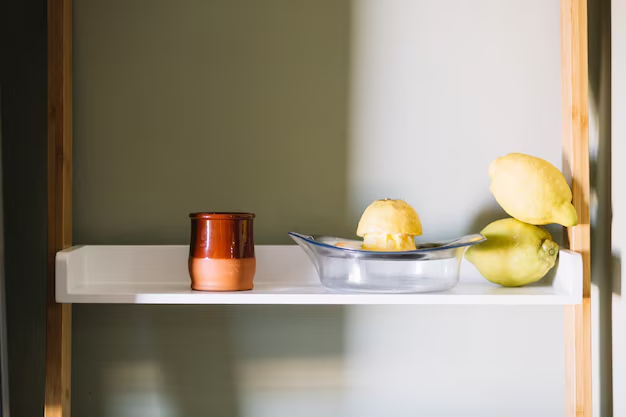How Long Do Boiled Eggs Last in the Refrigerator? The Ultimate Guide to Storing Boiled Eggs
There's something wonderfully simple and satisfying about a boiled egg. Whether they're used in a salad, sliced into a sandwich, or enjoyed on their own with just a sprinkle of salt and pepper, boiled eggs are a versatile and nutrition-packed staple. But once you've boiled them, how long do they last in the refrigerator? Let’s dive into the shelf life of boiled eggs and explore practical ways to ensure they stay fresh and safe to eat.
🥚 The Basics of Boiled Egg Storage
Boiled eggs, whether hard or soft-cooked, are a common feature in many people's diets due to their taste, nutritional value, and convenience. However, knowing how long they last and how best to store them can make all the difference in maintaining their quality.
How Long Do Boiled Eggs Last?
When stored properly, boiled eggs can last up to one week in the refrigerator. The key to extending their shelf life is to refrigerate them as soon as possible after boiling. It's essential to remember that the one-week timeframe applies to eggs stored in their shells; peeled eggs have a shorter shelf life of around two to five days.
Why Refrigeration Matters
Refrigerating boiled eggs slows the growth of bacteria, ensuring safety and freshness. This is especially important because the boiling process removes the eggs' protective coating, making them more susceptible to bacteria if left at room temperature for too long.
🧊 Best Practices for Boiled Egg Storage
Understanding the correct storage techniques can help maintain the quality and safety of your boiled eggs.
Immediate Cooling
After boiling, immediately cool your eggs under cold running water or place them in an ice-water bath. This not only halts the cooking process but also helps maintain a firm texture, making them easier to peel later.
Proper Storage Containers
Place your boiled eggs in a clean, airtight container. Avoid using containers that have held strong-smelling foods, as eggs can absorb odors and flavors. If you prefer, you can label the container with the boiling date to keep track of their freshness.
Temperature and Placement in the Fridge
Always store boiled eggs on a shelf inside the refrigerator where the temperature is more stable, rather than in the door where temperatures fluctuate. Maintain a fridge temperature of 40°F (4°C) or lower for optimal freshness.
🍳 To Peel or Not to Peel: Which Is Better for Storage?
The decision to peel your boiled eggs before storage can affect their shelf life and convenience. Here’s what you need to consider:
Keeping the Shell On
Storing eggs in their shells is generally recommended if you plan to keep them for up to a week. The shell acts as a natural barrier, preventing excessive moisture loss and protecting the egg from absorbing odors.
Peeling Before Storage
Opt for peeling only if you plan to use the eggs quickly, within two to five days. Store peeled eggs in a covered container with a damp paper towel to maintain moisture and prevent them from drying out.
🔎 Signs That Your Boiled Eggs Have Gone Bad
Sometimes, despite best efforts, eggs can spoil. Being aware of key indicators of spoilage is crucial:
- Odor: A strong, sulfur-like smell is a clear sign that boiled eggs have spoiled.
- Texture: Any slimy or chalky textures suggest spoilage.
- Color: Check for unusual colors on the egg white or yolk. Any changes in color, especially a greenish ring around the yolk, can indicate spoilage.
🗒️ Quick Summary: Boiled Egg Storage Tips
Here are some practical consumer tips to keep your boiled eggs fresh and safe:
- Store Time: Boiled eggs last up to 1 week in the fridge.
- Shell On: Keep the shells on for extended shelf life.
- Temperature: Maintain fridge temp at 40°F (4°C) or below.
- Check for Spoilage: Look out for bad odor, slimy texture, or color changes.
🌍 Understanding Boiled Egg Safety and Hygiene
Beyond basic storage, understanding egg safety is vital to prevent foodborne illnesses.
Handling Eggs Safely
- Always wash your hands before and after handling eggs.
- Clean any surfaces or utensils that have come into contact with raw eggs.
- Avoid cross-contamination by using separate cutting boards for eggs and other foods, especially raw meats.
The Role of Freshness
Using fresh eggs for boiling not only enhances flavor but also supports food safety. Fresh eggs have less air inside, which can result in a more compacted egg white and a yolk centered perfectly after boiling.
Reducing Waste
By following these practices, you can minimize food waste in your kitchen. Keep track of your boiled eggs’ shelf life and use them in time to prevent spoilage.
🍽️ Enjoying Boiled Eggs
With their convenient storage and easy prep, boiled eggs make the perfect ingredient or snack. Here are some ways to enjoy them:
- Breakfast: Add to toast, oats, or have as-is with seasoning.
- Lunch: Mix into salads, power bowls, or sandwiches.
- Snacks: Pair with a bit of cheese, nuts, or fresh veggies.
🎉 Bringing It All Together
The humble boiled egg is a powerhouse of nutrition and versatility. By mastering storage techniques and understanding food safety practices, you can enjoy the numerous benefits they offer without worry. Armed with these insights, you’re now prepared to keep your boiled eggs fresh and tasty, making them a staple in your kitchen repertoire. Enjoy experimenting with new recipes and savor the unbeatable simplicity that boiled eggs bring to your meals.
Whether you’re a seasoned cook or just starting, remembering these best practices ensures you’ll always enjoy the best that boiled eggs have to offer.

